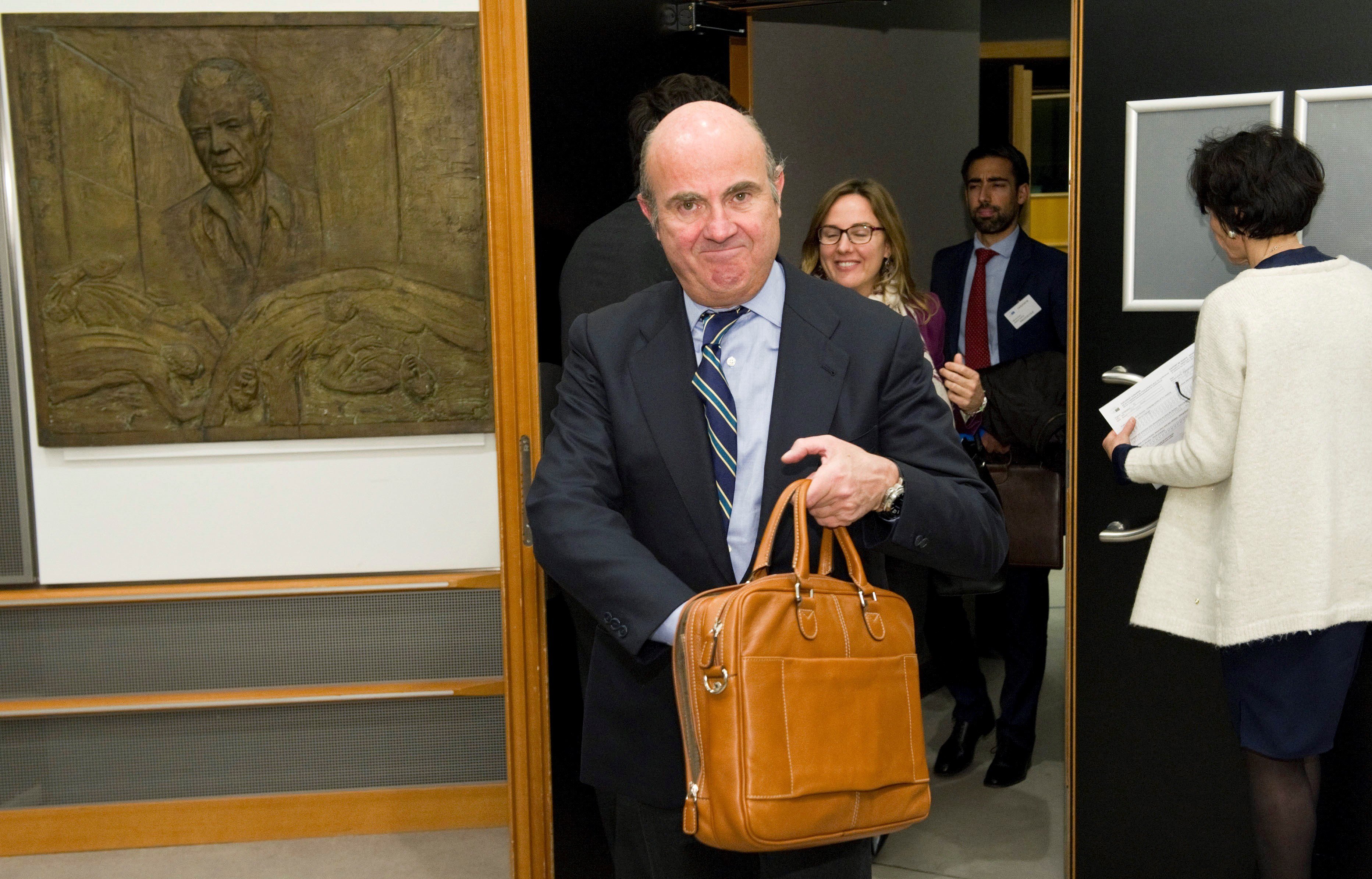Spain's Economy minister, Luis de Guindos, has received the first setback to his candidacy for the position of vice-president of the European Central Bank. The European Parliament's economic commission prefers the other candidate, Philip Lane, the governor of the Central Bank of Ireland. As the commission's president, Roberto Gualtieri, explained, the commission, after hearing from both candidates this Wednesday, believes that Lane was "more convincing" whilst some groups expressed reservations about the Spanish minister.
"Both candidates gave good presentations", said Gualtieri in a statement, adding that "the majority of the group believed Lane was the more convincing", whilst "some groups expressed reservations about the nomination of minister De Guindos".
The MEPs on the commission met this Wednesday behind closed doors with the two candidates. The Parliament's opinion, however, is not binding, and the final decision will be made by finance ministers next week. De Guindos remains the favourite to go to Frankfurt.

During his appearance in the Parliament, in support of his candidacy, De Guindos presented the improvements the Spanish economy has achieved during his mandate and argued that having been a member of a government "does not mean discrediting the defence of the independence of the financial authorities". "I believe that I can offer fundamentally six years of experiences, logically in very difficult times, the unprecedented cleanup of a banking system and logically my unconditional support for the mandate of the European Central Bank," he said.
The Eurozone's finance ministers will choose a candidate on the 19th of this month, requiring a supermajority of at least 14 of the 19 Eurozone countries. Then, on the 20th, the economy ministers of the whole EU will make the formal designation. The Spanish government says it has the necessary support for its candidate to be elected. So far, support has be expressed publicly by Portugal, Slovakia and Malta.
The European Parliament will then hold another audience, this time publicly, with the chosen candidate. After the meeting, planned for 26th February, they will issue a report on the new vice-president which will be subject to a vote in the plenary session. The ECB's governing body will also give its opinion, although neither of these two verdicts is binding. Finally, the decision will be taken to the leaders summit on 22nd and 23rd March where final confirmation will be given.

